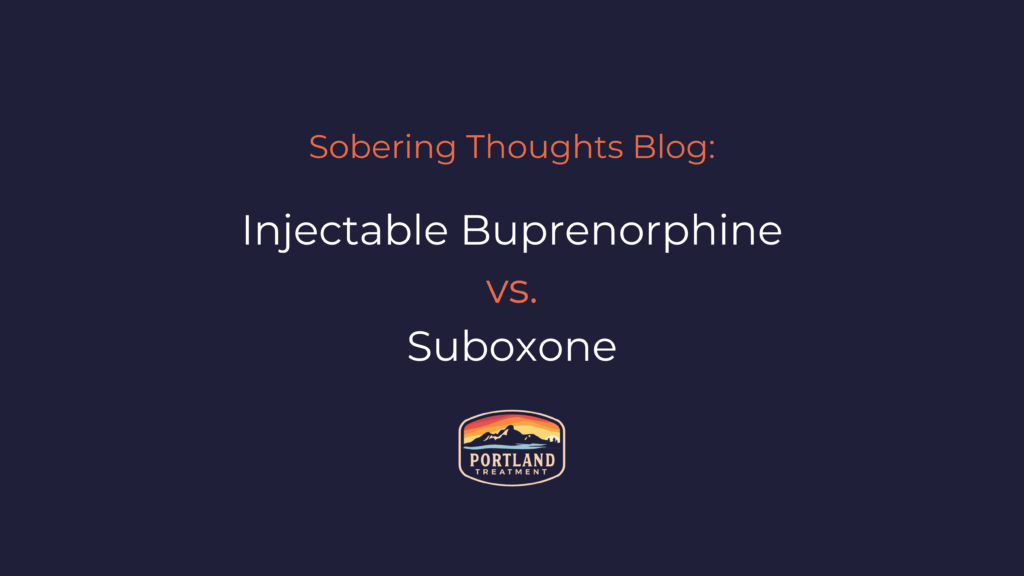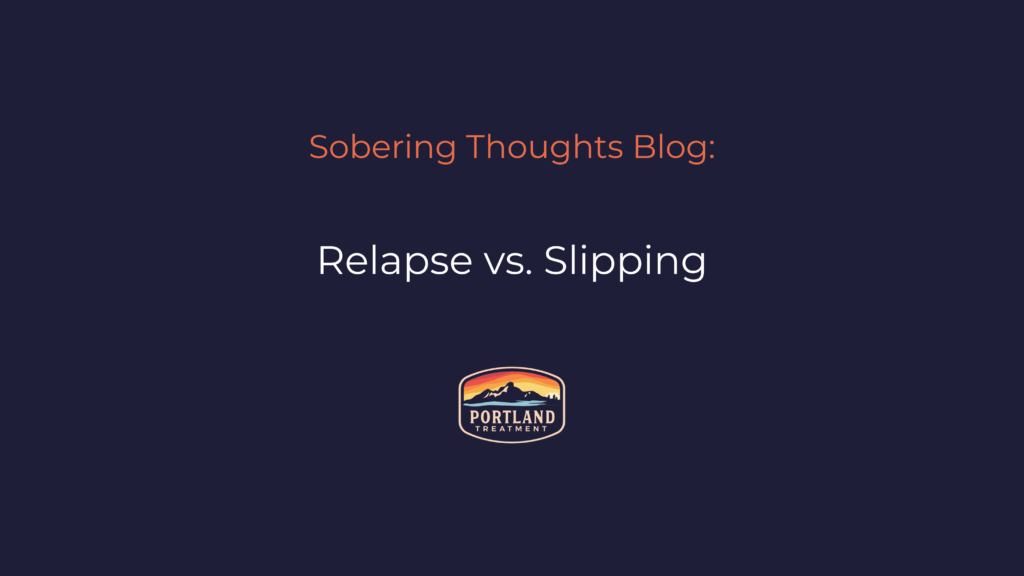Navigating the complex landscape of alcohol rehabilitation can be a challenging journey for individuals and their loved ones. Portland Treatment's Advanced Alcohol Rehab Techniques in ME offers a comprehensive approach to addressing the intricate needs of those struggling with alcohol addiction. This article will delve into the essential components of advanced alcohol rehab techniques, aiming …
Navigating the complex landscape of alcohol rehabilitation can be a challenging journey for individuals and their loved ones. Portland Treatment’s Advanced Alcohol Rehab Techniques in ME offers a comprehensive approach to addressing the intricate needs of those struggling with alcohol addiction.
This article will delve into the essential components of advanced alcohol rehab techniques, aiming to provide a deeper understanding of their necessity and benefits. From research on patient and treatment process factors related to rehabilitation outcomes to the effective implementation and evaluation of these advanced techniques, we will explore the intricacies of this innovative approach.
Whether you are a healthcare professional, a concerned family member, or someone seeking help for yourself, this article aims to shed light on the customized and effective strategies available for those in need.
Introduction to Advanced Alcohol Rehab Techniques
Advanced alcohol rehab techniques encompass innovative approaches and strategies aimed at providing comprehensive treatment for individuals struggling with substance abuse and mental health disorders.
These techniques go beyond traditional methods and incorporate outpatient treatment, residential programs, and integrated care to address the multifaceted nature of substance abuse and mental health issues.
Through evidence-based interventions and personalized care plans, individuals can access specialized support tailored to their unique needs, promoting sustainable recovery and holistic well-being.
Organizations such as SAMHSA and the National Helpline play pivotal roles in connecting individuals with these advanced treatment options, offering vital resources and guidance for those seeking assistance.
Understanding the Need for Advanced Techniques
Recognizing the need for advanced techniques in alcohol rehab involves understanding the complexities of addiction, the importance of family therapy in the recovery process, and the various counseling services available to individuals seeking treatment.
Addressing addiction from a comprehensive standpoint is crucial, as it encompasses physical, psychological, and social components. Healthcare providers recognize that addiction is a disease that affects the entire family unit, and as such, family therapy plays a pivotal role in the recovery journey. By involving family members in therapy sessions, the treatment approach becomes more holistic, addressing interpersonal dynamics and potential triggers.
Counseling services, including behavioral therapy and cognitive-behavioral interventions, are essential in providing individuals with coping mechanisms, relapse prevention strategies, and emotional support. These services, offered through various organizations and facilities, are tailored to meet the unique needs of each individual undergoing treatment.
Seeking guidance through trusted resources is integral in the recovery process. The Substance Abuse and Mental Health Services Administration (SAMHSA) and the National Helpline are valuable platforms for accessing information, support, and connecting with treatment facilities. Their resources give the power to individuals and families to make informed decisions towards recovery.
Benefits of Advanced Alcohol Rehab Techniques
The benefits of advanced alcohol rehab techniques extend beyond addressing addiction and substance use disorders, encompassing comprehensive rehabilitation approaches and outpatient treatment options that are supported by organizations such as SAMHSA.
Advanced alcohol rehab techniques prioritize personalized care, integrating medical, behavioral, and holistic approaches to address the complex challenges of addiction. These techniques often incorporate evidence-based therapies, medication-assisted treatment, and mental health support to provide a multifaceted approach to recovery.
Outpatient treatment options offer flexibility and accessibility for individuals seeking support while maintaining their daily responsibilities. This approach enables individuals to receive ongoing care, counseling, and support tailored to their specific needs, promoting sustained recovery and reintegration into society.
Organizations like SAMHSA play a crucial role in promoting awareness, providing resources, and advocating for the integration of comprehensive treatment options within the healthcare system, ultimately fostering a supportive environment for individuals on their path to recovery.
Research on Patient Factors Related to Treatment Outcome
Research on patient factors related to treatment outcome plays a crucial role in understanding the effectiveness of counseling services, residential programs, and healthcare providers in addressing substance abuse and mental health challenges.
This research helps in tailoring treatment plans to individual needs, taking into account factors such as age, gender, co-occurring disorders, and social support systems. It also provides insights into the importance of therapeutic alliances and their impact on treatment adherence and outcomes.
By examining patient demographics and psychosocial factors, researchers can identify underlying patterns and disparities, influencing the development of targeted interventions and personalized care.
Research on Treatment Process Factors Related to Rehabilitation Outcome
Research on treatment process factors related to rehabilitation outcomes addresses the nuanced dynamics of therapy, behavioral health interventions, and the impact of counseling and national helpline resources supported by organizations like SAMHSA.
Therapeutic strategies play a crucial role in aiding individuals in the recovery process, with a particular focus on evidence-based practices and personalized treatment plans. Behavioral health interventions encompass a range of approaches, including cognitive behavioral therapy, dialectical behavior therapy, and motivational interviewing, each tailored to address specific mental health and substance use issues.
The impact of counseling and national helpline resources cannot be understated, as they provide essential support, guidance, and crisis intervention services for individuals navigating recovery challenges. The seamless integration of these treatment process factors not only influences the recovery trajectory of individuals but also contributes significantly to the overall rehabilitation outcomes. It’s imperative to understand how these factors interact and how their collective influence shapes the success and sustainability of rehabilitation efforts.
Advanced Alcohol Rehab Techniques: Who are They For?
Advanced alcohol rehab techniques are designed to cater to individuals facing substance use disorders, including those struggling with alcohol, drugs, and opioid addiction, offering a spectrum of counseling services, residential programs, and support from healthcare providers and organizations such as SAMHSA.
These techniques are particularly valuable for individuals who need specialized care and treatment for long-term recovery. They encompass a range of evidence-based therapies, including cognitive-behavioral therapy, medication-assisted treatment, and comprehensive detoxification protocols.
With a focus on addressing the underlying causes of addiction, these methods aim to provide holistic support for individuals struggling with substance use disorders.
Identifying the Target Audience
Identifying the target audience for advanced alcohol rehab techniques involves recognizing individuals struggling with substance abuse, seeking recovery, and in need of mental health support and counseling services, including outpatient treatment options.
Understanding the target audience for advanced alcohol rehab techniques plays a crucial role in tailoring treatment programs to their specific needs. These individuals often face overwhelming challenges, including the physical, psychological, and social repercussions of alcohol addiction. Addressing their needs requires a comprehensive approach that integrates medical, psychological, and social support to facilitate successful recovery.
This target audience may also involve families and loved ones impacted by the individual’s substance abuse. Providing education, therapy, and support services for these secondary affected parties is essential to create a strong support system and facilitate long-term recovery.
Customizing Techniques for Specific Needs
Customizing techniques for specific needs involves tailoring behavioral health interventions, therapy approaches, and leveraging support from organizations such as SAMHSA and the National Helpline to address the diverse mental health challenges individuals may encounter during treatment.
By customizing interventions, individuals with mental health conditions can receive more effective and targeted care. Tailoring behavioral health interventions involves understanding the unique needs, preferences, and backgrounds of each individual. Therapists may adapt traditional cognitive-behavioral therapy or dialectical behavior therapy techniques to better address the specific challenges faced by their patients.
The support offered by organizations such as SAMHSA and the National Helpline is instrumental in providing resources, information, and assistance to those seeking help for mental health concerns. These organizations play a crucial role in ensuring that individuals have access to appropriate and personalized support, contributing to the overall effectiveness of treatment and recovery.
Effective Implementation of Advanced Alcohol Rehab Techniques
The effective implementation of advanced alcohol rehab techniques requires a comprehensive treatment approach that addresses addiction through therapy interventions and support from dedicated healthcare providers and organizations like SAMHSA.
Comprehensive treatment encompasses medical detoxification, individual and group therapy sessions, support groups, and aftercare planning. These components work synergistically to address the physical, psychological, and social aspects of alcohol addiction. Therapy interventions such as cognitive-behavioral therapy (CBT), motivational interviewing, and family therapy play a pivotal role in identifying and addressing the underlying triggers and behaviors contributing to alcohol misuse.
Dedicated healthcare providers, including addiction specialists, psychiatrists, nurses, and counselors, play an critical role in delivering personalized care and support to individuals seeking alcohol rehabilitation. Organizations like SAMHSA provide guidelines, resources, and accreditation to ensure the highest standards of care and evidence-based practices within the alcohol rehab sector.
Integration into Existing Treatment Programs
Integrating advanced alcohol rehab techniques into existing treatment programs involves enhancing the support for substance abuse and mental health challenges, optimizing outpatient treatment options, and strengthening residential programs with the guidance of counseling services and resources from organizations like SAMHSA.
By incorporating the latest evidence-based practices, treatment providers can refine their strategies to address the complex needs of individuals battling alcohol addiction. This involves leveraging specialized therapies such as cognitive-behavioral therapy and motivational interviewing to foster a comprehensive approach to recovery.
Integrating advanced alcohol rehab techniques entails tailoring treatment plans to address co-occurring mental health disorders, ensuring a holistic approach to healing. This integration also involves streamlining resources for medication-assisted treatments and peer support initiatives to bolster the continuum of care.
Training and Education for Staff
Providing training and education for staff involved in advanced alcohol rehab techniques centers around developing expertise in rehabilitation, therapy, behavioral health interventions, and mental illness support, with a focus on leveraging counseling services and resources from organizations like SAMHSA.
This training and education play a crucial role in equipping professionals with the knowledge and skills required to address the complex needs of individuals struggling with alcohol addiction. By focusing on advanced rehab techniques, these programs ensure that staff can effectively administer individualized treatment plans, with a strong understanding of evidence-based practices.
The emphasis on behavioral health interventions within these educational initiatives enables staff to comprehend the nuanced dynamics of addiction and mental health, thereby enhancing their ability to provide comprehensive support.
By integrating resources and guidance from reputable organizations such as SAMHSA, the staff gain access to the latest research, best practices, and ethical counseling frameworks, fostering a commitment to providing high-quality care with professionalism and compassion.
Evaluating the Success of Advanced Alcohol Rehab Techniques
Evaluating the success of advanced alcohol rehab techniques involves assessing treatment outcomes, measuring the impact on substance abuse and mental health issues, and leveraging the support of residential programs and healthcare providers, in alignment with the resources offered by organizations like SAMHSA.
Assessing treatment outcomes is a multifaceted process that encompasses various elements, including the overall effectiveness of the rehabilitation interventions, the level of improvement in physical and mental well-being, and the sustained sobriety of the individuals undergoing treatment. It also involves evaluating the holistic impact on the individual’s quality of life, such as their ability to reintegrate into society and maintain healthy relationships.
Measuring the impact on substance abuse and mental health issues requires a comprehensive analysis of the individual’s progress in overcoming addiction, managing potential relapse triggers, and addressing any underlying mental health concerns. This assessment often involves using validated measurement tools to track changes in substance use patterns, mental health symptoms, and overall functioning.
Leveraging the support of residential programs and healthcare providers is essential for evaluating the success of advanced alcohol rehab techniques. Residential programs provide a structured and supportive environment for individuals to focus on their recovery, while healthcare providers play a crucial role in delivering evidence-based treatments and monitoring the progress of the individuals.
Organizations like SAMHSA offer invaluable resources for evaluating treatment outcomes and impact assessment, including guidelines, research findings, and access to evidence-based practices. These resources help ensure that the evaluation process aligns with best practices and current standards in the field of alcohol rehabilitation.”
Measuring Treatment Outcomes
Measuring treatment outcomes in the context of advanced alcohol rehab techniques involves evaluating the effectiveness of rehabilitation, therapy, and behavioral health interventions, while leveraging the support of mental illness counseling services and resources from organizations like SAMHSA.
This process is crucial for understanding the impact of interventions on the individual’s recovery journey. By assessing the progress and changes in behavior, mental health professionals can tailor treatment plans to better suit the patient’s needs. Data-driven insights from outcome measurements also assist in refining therapeutic approaches to achieve optimal results.
Organizations such as SAMHSA play a pivotal role in providing standardized frameworks for measuring treatment outcomes, ensuring that the assessments align with industry best practices and evidence-based research. This collaboration between treatment providers and established entities fosters a comprehensive approach to addressing alcohol rehabilitation and mental health support.
Continuous Improvement and Adaptation
Continuous improvement and adaptation within advanced alcohol rehab techniques revolve around refining comprehensive treatment approaches, addressing addiction and substance use disorders, and optimizing outpatient treatment options with the support and guidance of organizations like SAMHSA.
This ongoing process involves integrating cutting-edge medical advancements, therapeutic modalities, and evidence-based practices to personalize treatment plans for individuals struggling with alcohol addiction. The refinement of comprehensive treatment approaches entails a holistic understanding of the physical, psychological, and social aspects of addiction, ensuring a more effective and sustainable recovery journey.
Conclusion and Summary
In conclusion, advanced alcohol rehab techniques offer a holistic approach to addressing substance abuse and mental health challenges, supported by outpatient treatment options, residential programs, counseling services, and the resources provided by organizations such as SAMHSA.
These techniques encompass a range of evidence-based practices, including cognitive-behavioral therapy, medication-assisted treatment, and holistic wellness programs to support individuals on their path to recovery. SAMHSA’s comprehensive approach incorporates prevention, treatment, and recovery support services, fostering a continuum of care.
Whether through individual or group therapy sessions, advanced alcohol rehab techniques prioritize addressing the underlying causes of addiction alongside mental health concerns. This approach supports individuals in developing coping mechanisms and life skills essential to long-term sobriety.
SAMHSA’s resources extend to a network of support groups, mental health services, and educational materials, give the power toing individuals and families to navigate the complexities of substance abuse and mental health challenges.
References and Additional Resources
The references and additional resources section provides a wealth of scientific research and valuable information from reputable sources such as the National Library of Medicine and the National Institutes of Health, addressing various aspects of addiction, mental health, and substance abuse.
In the realm of addiction, mental health, and substance abuse, comprehensive and evidence-based information is crucial for a nuanced understanding. The National Library of Medicine’s database, PubMed, stands as a cornerstone for accessing peer-reviewed articles and studies, covering a wide spectrum of topics, from neurobiology to behavioral interventions. The National Institutes of Health offers a wealth of resources, including reports, statistics, and clinical trials, guiding both practitioners and individuals seeking a deeper understanding of these complex issues.
The Substance Abuse and Mental Health Services Administration (SAMHSA) provides valuable insights and publications, bridging the gap between research and practical applications. SAMHSA’s collection of toolkits and treatment locators facilitates access to evidence-based interventions and support services, catering to diverse needs within the field.
Frequently Asked Questions
What are Portland Treatment’s Advanced Alcohol Rehab Techniques in ME?
Portland Treatment’s Advanced Alcohol Rehab Techniques in ME are a set of specialized and innovative methods used to treat alcohol addiction in individuals. These techniques are designed to help individuals overcome their addiction and maintain long-term sobriety.
How do these advanced techniques differ from traditional alcohol rehab methods?
These advanced techniques differ from traditional alcohol rehab methods in that they are more personalized, evidence-based, and often involve holistic approaches. They focus on treating the individual as a whole, rather than just addressing the addiction itself.
What are some examples of advanced alcohol rehab techniques offered at Portland Treatment in ME?
Some examples of advanced alcohol rehab techniques offered at Portland Treatment in ME include cognitive-behavioral therapy, motivational interviewing, mindfulness-based therapy, and experiential therapy. These techniques have been proven effective in helping individuals overcome alcohol addiction.
How does Portland Treatment’s approach to advanced alcohol rehab benefit individuals?
Portland Treatment’s approach to advanced alcohol rehab benefits individuals by providing personalized treatment plans that address their specific needs. This individualized approach increases the chances of successful recovery and long-term sobriety.
Who can benefit from Portland Treatment’s Advanced Alcohol Rehab Techniques in ME?
Portland Treatment’s Advanced Alcohol Rehab Techniques in ME are beneficial for anyone struggling with alcohol addiction. They are especially helpful for individuals who have tried traditional rehab methods without success, as well as those with co-occurring mental health disorders.
Are these advanced alcohol rehab techniques covered by insurance?
Most insurance plans cover the cost of alcohol rehab, including advanced techniques offered at Portland Treatment in ME. It is best to check with your insurance provider to determine coverage and any out-of-pocket costs.
Comprehensive and Compassionate Addiction Treatment at Portland Treatment in Maine
At Portland Treatment in Maine, we are deeply committed to providing comprehensive and compassionate care for those struggling with addiction. Our approach is holistic, focusing on the individual as a whole, rather than just the symptoms of addiction. We understand that each journey to recovery is unique, and our expert team is dedicated to creating personalized treatment plans that cater to the specific needs and circumstances of each client.
Our facility offers a wide range of services designed to support individuals at every stage of their recovery journey. From initial detoxification to inpatient rehab, outpatient programs, and ongoing aftercare support, we ensure a continuum of care that fosters lasting recovery. Our treatment modalities include evidence-based therapies, innovative treatment techniques, and holistic approaches that encompass mental, physical, and emotional health.
Recognizing the importance of a supportive environment in the recovery process, Portland Treatment provides a nurturing and safe space where individuals can heal and grow. Our programs are designed to empower clients, helping them develop the skills and resilience needed to overcome addiction and rebuild their lives. Family involvement is also a key component of our approach, as we believe in healing and strengthening family relationships as part of the recovery journey.
At Portland Treatment, we pride ourselves on our team of highly qualified professionals who bring a wealth of experience and expertise to our programs. Our staff includes licensed therapists, medical professionals, and addiction specialists who are passionate about helping individuals achieve sobriety and wellness. We are constantly evolving our practices to incorporate the latest research and best practices in addiction treatment, ensuring the highest standard of care for our clients.
Choosing Portland Treatment in Maine means choosing a path to recovery that is supported by expertise, compassion, and a commitment to excellence. We are not just a treatment center; we are a community dedicated to helping individuals and their families overcome the challenges of addiction and move forward to a brighter, healthier future.






